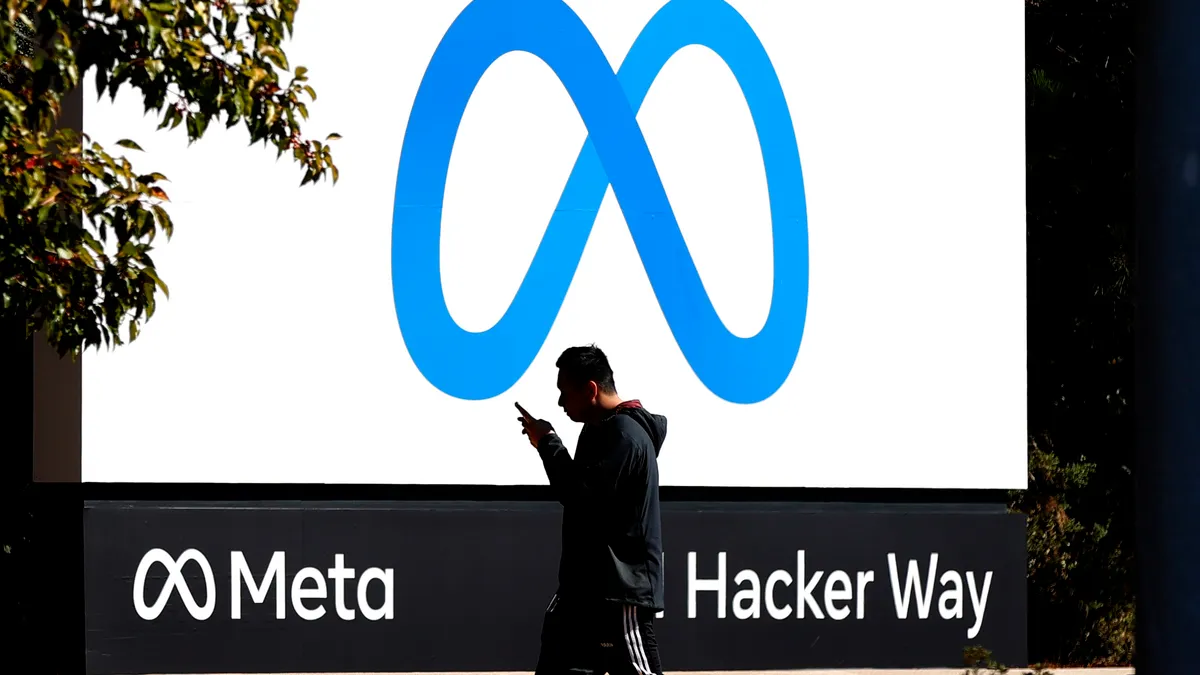Dive Brief:
- Meta is continuing to prioritize age-appropriate advertising experiences for teen users with a slew of updates, per a company blog post. Gender will no longer be an available metric for targeting, though age and location are still fair game.
- Among other shifts, engagement on its apps including Facebook and Instagram will not contribute to the types of ads teens consume. In March, teens will also be able to manage the types of ads delivered to them through Ad Topic Controls that allow them to filter topics and specific advertisers.
- Meta also added a new privacy page that offers teens additional resources to help them understand and protect their privacy. The move is one of several efforts by the brand to scale back its ad personalization capabilities amid growing criticism.
Dive Insight:
Meta has increasingly come under scrutiny for its questionable advertising practices — which were most recently ruled illegal under the European Union’s data-protection law — adding pressure on the Facebook and Instagram owner to set the record straight. Efforts around protecting teen users have been an ongoing conversation, which at one point included an investigation by Ireland’s Data Protection Commission, and its latest move indicates that the subject is still front of mind.
Meta’s new updates mean advertisers will no longer be able to track teens across its platforms, or use gender as a targeting option. Age and location will still be available because the data helps advertisers ensure relevancy, the company detailed in its post, but targeting efforts for the demographic need not go any further.
”We recognize that teens aren’t necessarily as equipped as adults to make decisions about how their online data is used for advertising, particularly when it comes to showing them products available to purchase,” the announcement said.
The company is also expanding teens’ ability to control the ads that are served to them, providing additional tools within its Settings page for teens to choose to “see less” or make “no preference” on the types of ads they see. Meta already prohibits ads about restricted categories such as alcohol, financial products and weight loss services, but its new updates would allow younger users to note specific industries or advertisers it would like to see less of. Finally, Meta will add information about the platforms’ tools and privacy settings to help teens understand and have control over their privacy across its platforms.
The changes reflect company research, direct feedback from parents and child developmental experts, United Nations children’s rights principles, and, not incidentally, global regulation. The measures also build on changes made in 2021 that include controlling the ability for advertisers to target teens based on interest and activities.
Meta’s new teen controls were announced one day after the company revealed it had developed a new machine-learning system intended to reduce algorithmic bias in advertising. The new Variance Reduction System was developed with the Department of Justice as part of a settlement that the company’s algorithms could serve ads based on federally protected characteristics such as sex, race and ethnicity, resulting in discriminatory practices.












